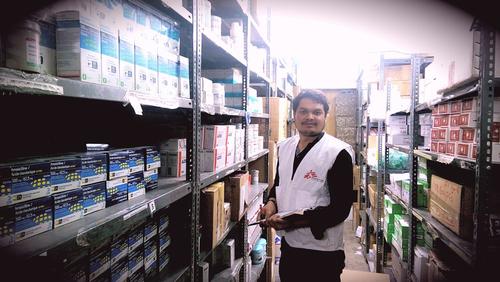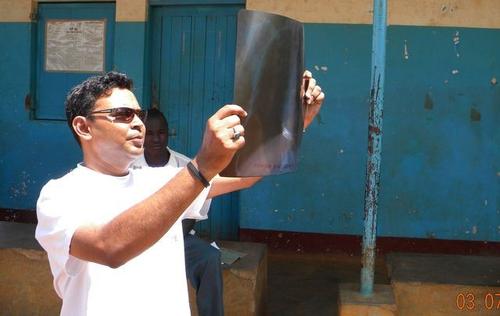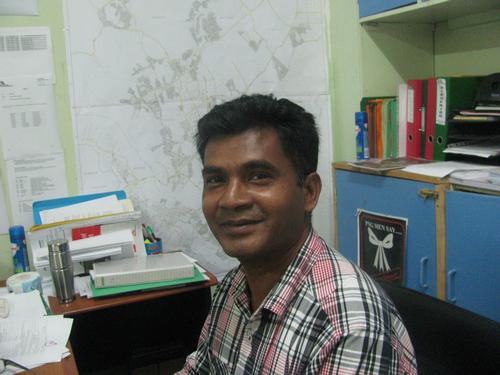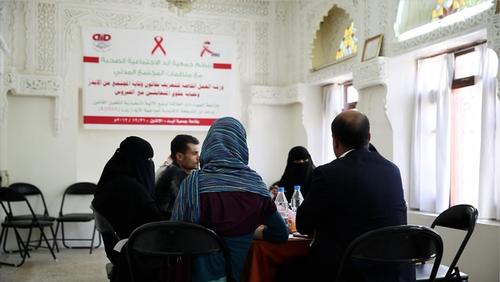Tawhidul Hamid, also known as Tawhid, was born 33 years ago in Cox’s Bazar, Bangladesh. Moved by the suffering of the vulnerable people hit by natural disasters in his home country, he decided to follow a humanitarian path. Today, after stints working in Uzbekistan and Kenya, he is a logistician in Yemen for Médecins Sans Frontières (MSF) and ensures that everything is in place to help victims of violence.
Bullets come and go all the time and people get hit by them. The hospital in Ad Dhale receives many injured patients who struggle for a chance to live. “There is a lot of fighting going on around the city. Lots of wounded people approach us in need of medical treatment. The operating theatres are busy all the day through”, says Tawhidul Hamid.
Known as Tawhid in his hometown of Cox’s Bazar, in the Southeast of Bangladesh, this 33-year-old logistician tries to ensure that everything is in place for Médecins Sans Frontières (MSF) in Yemen. Tawhid has been working for this medical organisation in Yemen since the beginning of the year. His job is varied and ranges from clearing cargoes full of medicines with the authorities at the sea port to purchasing enough fuel to prevent the recurrent power shortages affecting MSF’s work. But things are often difficult.
“The country is experiencing a serious security crisis right now. When I arrived back in February, the team had been evacuated from Ad Dhale to the capital, Sana’a. There was continuous fighting between government forces and opposition groups.”
Miracles happen
MSF is back in Ad Dhale now though, after a ceasefire between the warring sides allowed some space to work, but the environment is still volatile. The bullet holes in the walls of the Ministry of Health hospital where MSF runs operations serve as a reminder of the violence.
“It is normal to listen to the national staff talking about gunshots or explosions that happened the night before. The other day, for example, I was called by a doctor on the phone who was impressed by the fact that one of his patients survived a gunshot. The bullet went through the chest of the patient right next to the heart but did not harm the heart, so he survived. It was a miracle”.
Tawhid is normally based in Sana’a, but as he is also in charge of training other logisticians in Ad Dhale he has to travel there from time to time. In Sana’a the team has to considerably limit their movements, and he explains: “We have to be careful because of the kidnappings”.
When Tawhid arrived in the capital for the first time he was one of the few MSF people from abroad. “I had to ask a Sudanese colleague to help me translate into Arabic. Now we are a full team and the dynamics are good”.
Despite the constraints, Tawhid is sure about the benefits of the work he and his colleagues are doing. “We are making a big difference in Yemen. We are saving the lives of people every day,” he says with confidence.
Born in a disaster-prone area
For Tawhid, Yemen is another step so far of a journey to alleviate people’s suffering. “Since my childhood I have observed the recurrence of natural disasters in Bangladesh that intensify the vulnerability of human lives and property. The mounting pain of the distressed people always made me feel [I had] to work for their protection”.
After studying Business at the National University in Bangladesh, Tawhid began working in Cox’s Bazar for aid organisations, assisting Rohingya refugees coming from Myanmar and people hit by natural disasters in a coastal area situated in the cyclone-prone Bay of Bengal.
In 2011, Tawhid shifted his focus from a local to an international level and started working for MSF abroad. To begin with he coordinated cargo flights from the Kenyan town of Lokichoggio for the projects in South Sudan, and later ensured that necessary stocks of drugs and other crucial supplies reached healthcare facilities in Uzbekistan, where MSF runs tuberculosis programmes. More recently he moved to Yemen where he facilitates the treatment for victims of the violence that is affecting the country.
Tawhid misses his wife, and between missions he tries to travel back to Bangladesh to visit her. She is surely proud of him.






